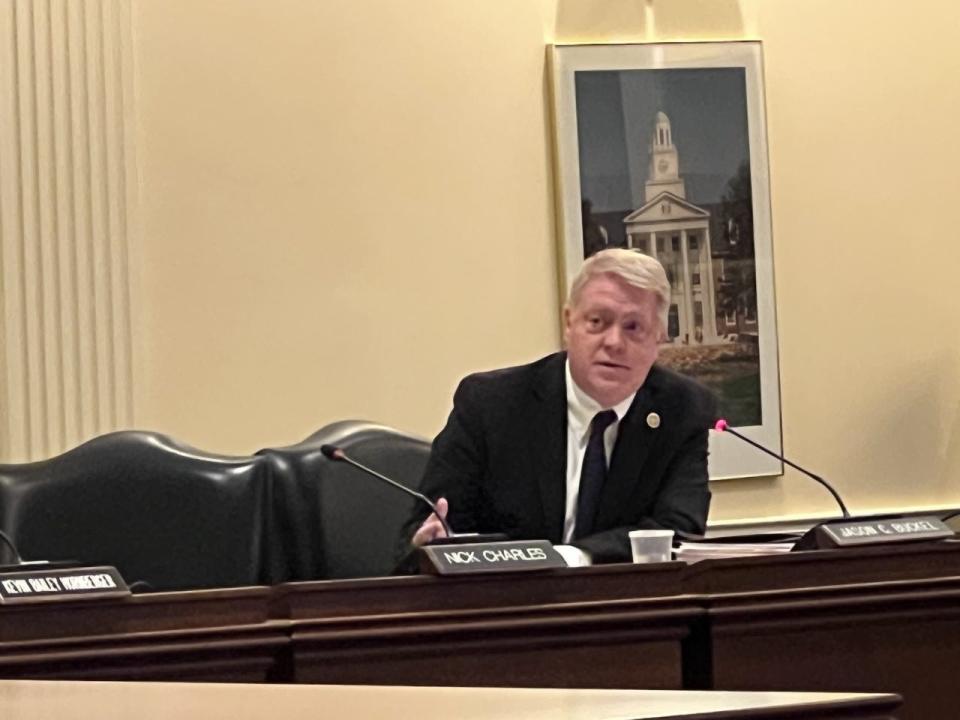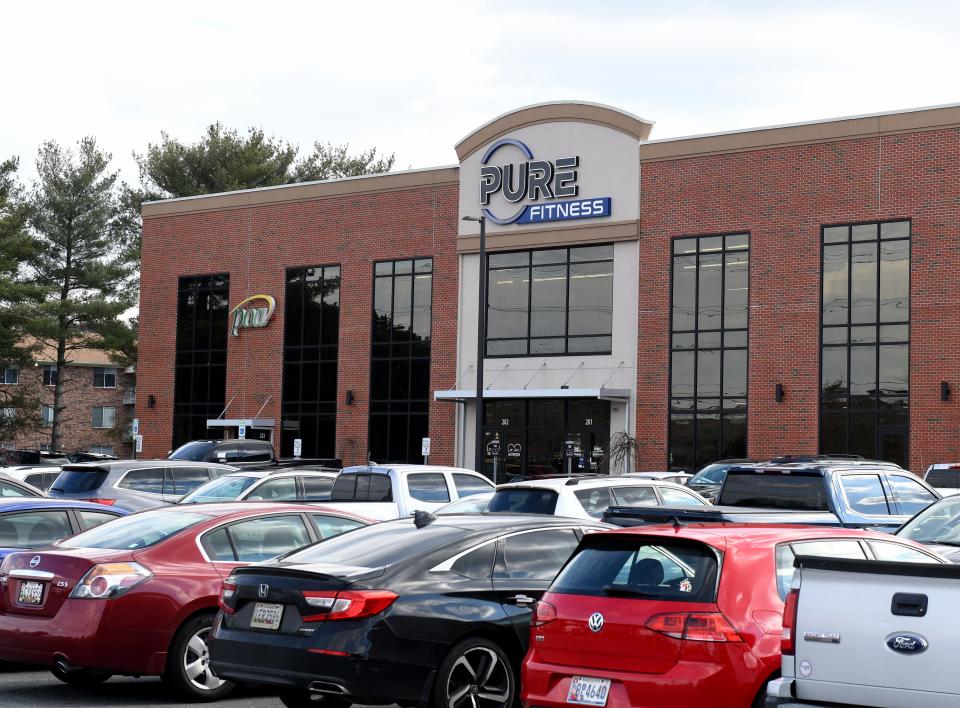Hagerstown, Salisbury enterprise zones fuel growth. Will door close on incentive?
In the last week before Gov. Larry Hogan left office, the Department of Commerce announced expanded enterprise zones in both Hagerstown and Salisbury. Now, the business development program, which started in 1982 to provide tax incentives to companies locating in the state’s most economically distressed communities, has come under scrutiny.
“The enterprise zone program is one of the most expensive business tax credits in our state,” said Delegate Julie Palakovich Carr, sponsor of a bill to alter the program, during a House Ways and Means Committee hearing Thursday in Annapolis. “It’s not working as intended.”
Throughout the years, Maryland's enterprise zone program has helped jurisdictions throughout the state lure new business and new jobs through state and local tax incentives. These reduced tax obligations are available to new or expanding businesses within the designated area.
The State Department of Assessments and Taxation disbursed $26.8 million toward the program in fiscal 2022, according to Abigail McKnight, a tax specialist at the state’s Department of Commerce. Carr, a Montgomery County Democrat, said there’s no cap or limit to what the state might have to pay for the program down the road.
More:As Maryland's school plan begins, 'childcare deserts' a persistent problem
A separate report on the program, released in December, said current program criteria “do not accurately measure economic distress” for areas qualifying for the credits. Currently, zones must be renewed every 10 years.

House Minority Leader Jason Buckel, R-Allegany, said he did not want the program to be discontinued. Carr’s legislation, which does not have a Senate companion, would end the program Jan. 1, 2031.
“I don’t want to see the program gutted,” Buckel said during the hearing, “to get to perhaps an intelligent goal of ‘Let’s limit it to places where it would really be most effective.’ ”
The state has more than 70,000 acres in 34 designated enterprise zones across 18 counties and Baltimore City. Washington and Wicomico counties each have two zones with a total of more than 5,000 acres, including recently expanded zones in their respective county seats. On the lower Eastern Shore, Worcester and Somerset counties also each have two zones.
Hagerstown's enterprise zone would continue, bill sponsor says
The program has been “a powerful tool” for attracting new business to Washington County, not least of which is the new Hitachi Rail factory under construction at the west end of Halfway Boulevard, Washington County Business Development Director Jonathan Horowitz told the Washington County Commissioners on Jan. 31.
“Hitachi Rail, actually, was one of our big wins utilizing the enterprise zones,” Horowitz said. “Our ability to win that entity was somewhat based on the enterprise zone program.”
Related:New $70M factory expected to bring 'up to 460' jobs to Washington County
Doug Reaser, business development specialist with the city of Hagerstown, testified against the bill. The Hagerstown zone is set to expire in December 2032. The bill’s sponsor assured the committee the city’s zone would remain in effect under existing law.
“Hagerstown’s enterprise zone would continue even if we passed this legislation,” Carr said.
The recent expansion of about 536 acres in downtown Hagerstown added parcels along South Potomac and First streets, Kuhn Avenue, Frederick Street and Edgewood Drive, and South Burhans Boulevard and West Antietam Street. Hancock has a less than 2,000-acre zone that is set to expire in 2025.
Background:Officials break ground at NorthPoint development
The enterprise zone designation was also used in the past couple of years for a facility at 1115 Wesel Blvd., according to a 2021 Department of Commerce report. That facility is occupied by Amazon, the multinational company that made over $100 billion in sales last year, and opened a fulfillment center on the site in 2021.
In Wicomico, transformation goes beyond downtown Salisbury

The projects in the Salisbury-Wicomico Enterprise Zone have included renovating the vacant Labinal building, once used for aerospace electrical wiring production. The zone’s administrator for the past decade said the net effect of the projects has been a transformed downtown.
“Downtown collectively we’ve seen a lot of projects,” said Laura Soper, Salisbury’s director of business development. “It’s kind of shifted the overall look and feel of downtown.”
The zone, which includes downtown Salisbury; a small retail area by Salisbury University; and both Northwood and Westwood industrial parks, expanded to include Westwood Commerce Park; The Centre at Salisbury and South Salisbury near the University/Milford Street.
“Some of the census tracts when we were looking to redesignate them actually changed and were ineligible,” Soper said, “but there is a proximity criteria that you can use.”
GROWTH & DEVELOPMENT: How downtown hotel, events center would drive business in Salisbury
The Salisbury zone is more than 5,000 total acres, while a nearby zone in Fruitland stretches to only 129 acres. The Fruitland zone is set to expire in December 2025.
A similar federally funded Opportunity Zones program was created as a part of legislation enacted in 2017. Of the state program, which pulled a total of more than $50 million from the state coffers in the last two fiscal years, the bill’s sponsor is seeking not its elimination, but reform.
“My intention is not to gut the program,” said Carr. “I’m open to some other solutions.”
This article originally appeared on The Herald-Mail: Salisbury, Hagerstown enterprise zones get hearing, future in question

